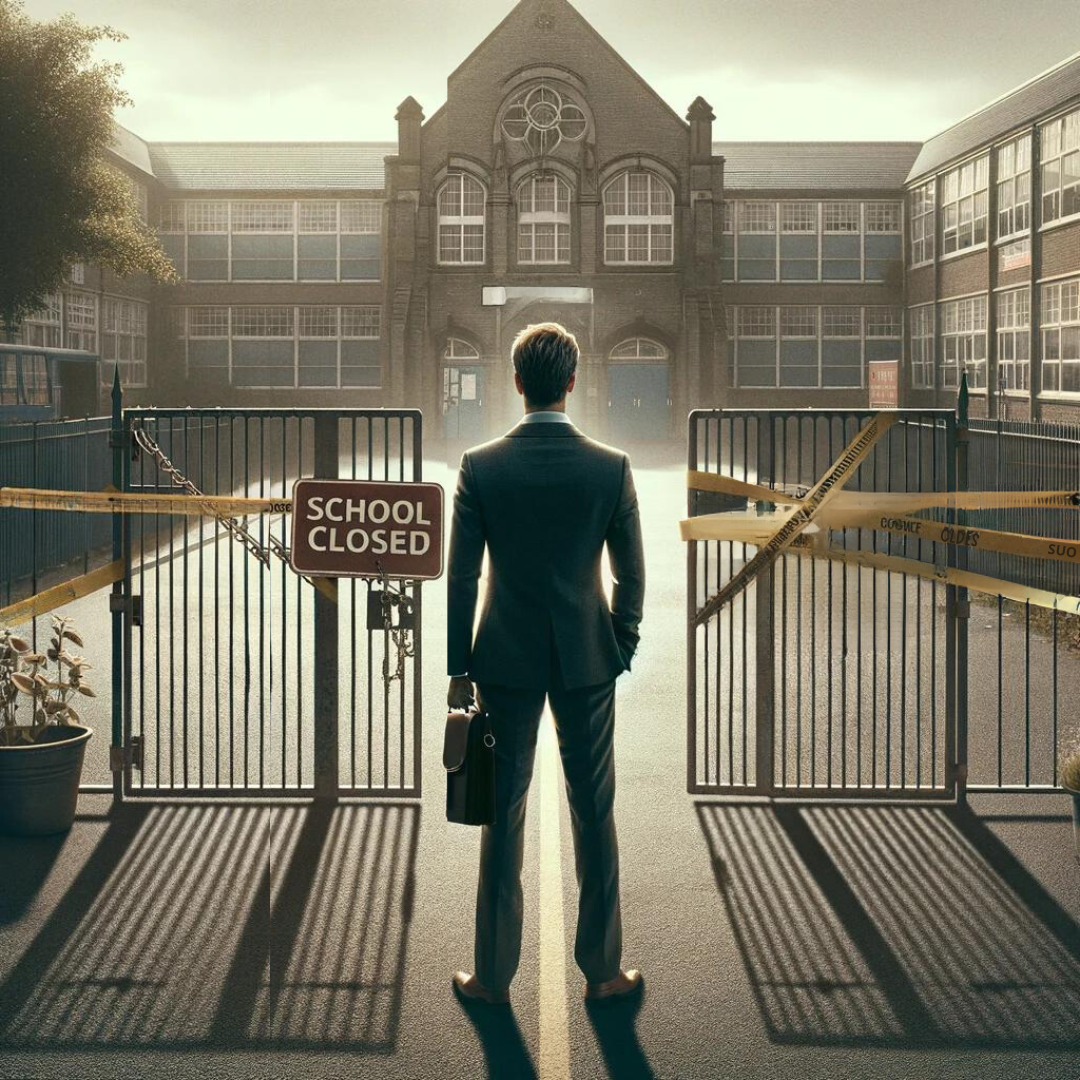Washington Policy Center statement on state audit of charter schools

Yesterday I testified before the Joint Legislative Audit and Review I-900 Subcommittee in Olympia about the state audit of "Charter School Accountability and Opportunities for Colloboration," recorded on TVW at 1:26:45, here. Below is my testimony:
"Thank you for this opportunity to speak to you about Washington state’s public charter schools, and on behalf of the children of this state, thank you to those members who voted for the bi-partisan law that provides steady and reliable funding for charter school families.
In response to previous testimony, I wish to note The Charter School Act encourages, but does not limit, charter schools to serve at-risk students. In fact the Act states as follows:
“Nothing in this section prevents formation of a charter school organized around a special emphasis, theme, or concept as stated in the school's application and charter contract.” RCW 28A.710.050(5)
The state auditor’s office has released an audit which examines whether charter schools have “the foundations in place to help ensure they are accountable to the public.” The problem with many audit recommendations is they either work against state law or unfairly target charter school families with rules and restrictions that do not apply to other public school families.
1. The audit says charter schools should use weighted enrollment preferences to select students based on race, a new “diversity” requirement.
First, this would violate the Washington Civil Rights Act (RCW 49.60.400). This law bars public officials from discriminating against or granting preferences based on race, sex, color, ethnicity or national origin.[1]
Second, the majority of students attending public charter schools are students of color. The state should not impose race-based rules, quotas or restrictions that apply to them but no one else.
2. The audit says charter schools should collect information on the immigration and refugee status of charter school students.
Charter schools have rightly refused to collect this information because this, too, would be illegal.[2] Also, other public schools do not collect immigration status information about their students, and charter schools should not be singled out.
3. The audit looked at, “...the extent to which the charter schools and traditional schools work together.”
This creates a false expectation for public charter schools.There is no requirement in the Charter School Act that charter schools to “work with” school districts.
Further, families often turn to charter schools precisely because the traditional public schools in their communities are not working for them.In fact, all school districts in the state except one have refused to authorize any charter schools in their area.
In addition, powerful union interests at the district level oppose charter schools, and the WEA union has tried twice to close every charter school in the state.
Given the hostility charter school families often face, it is more appropriate to ask whether school districts should make greater efforts to working with charter schools, instead of the other way around.
Finally, the audit ignores the rigorous accountability measures which make charter schools more accountable to the public than traditional schools. Here are ways charter schools are accountable in ways traditional public schools are not.
1. Charter schools are directly accountable to parents, who must voluntarily support the school in order for it to stay open.
2. Charter schools have individual contracts that must be reviewed and approved by the State Charter School Commission. Contracts can be cancelled if they do not meet accountability measures.
3. Each charter schools is accountable to an independent school board, made up of education experts and members of the community. These independent local boards are often more accountable to parents than school boards created by political elections. This form of governance was approved by the state supreme court in an October 25, 2018 ruling.
4. Charter schools perform better than many traditional public schools. State officials have identified 252 schools in Washington state as failing schools.[3] All of these failing traditional public schools are heavily influenced by the WEA union and are governed by locally-elected school boards. Every year, administrators send about 54,000 children to this failing schools.
In conclusion, public charter schools work because they are popular with parents. Attendance at a public charter school is entirely voluntary, and many charters have waiting lists.
A majority (61%) of the 3,500 students who attend a Washington state charter school are students of color, 58% are low-income students, and 16% are special needs students. All these percentages exceed state averages for serving at-risk students, and many exceed local school district averages.
The purpose of this state audit, which was requested by a charter school opponent, was to examine whether Washington’s charter schools “are accountable to the public.” The answer is clearly “yes”.
The results for charters are not “mixed,” as The Seattle Times reported recently. Since Washington became the 42nd state to allow charter schools, they have faced a unique level of targeted hostility and anger from political forces that is not directed at other schools. Charter students are denied equal funding, they are denied equity in capital funds, and often they are denied access to the use of public buildings and other district resources. Seattle’s mayor even denies them Orca bus cards. The WEA union would like to close every charter school in the state.
Yet public charter schools continue to thrive, and more open every year. The reason is that, despite the opposition of powerful elites, parents like them, and many believe these innovative schools are the best choice for their children.
That is good for families and it is good for the public interest, because the people of Washington want all children to learn, grow and have the best chance for success in life, no matter what kind of public school they attend.
[1] Page 16 of the audit states that using weighted enrollment preferences could “impinge on state law”; i.e. the Washington Civil Rights Act.
[2] “Immigrant Students’ Rights to Attend Public Schools, Migrant and Bilingual Education,” Office of Superintendent of Public Instruction, at https://www.k12.wa.us/MigrantBilingual/ImmigrantRights.aspx.
[3] “How Washington’s School Achievement Index became the School Spending Index,” by Liv Finne, Washington Policy Center, June 2018, at https://www.washingtonpolicy.org/library/doclib/Finne-How-Washington-s-School-Achievement-Index-became-the-School-Spending-Index.pdf.
Thank you for this opportunity to speak to you about Washington state’s public charter schools, and on behalf of the children of this state, thank you to those members who voted for the bi-partisan law that provides steady and reliable funding for charter school families.
In response to previous testimony, I wish to note The Charter School Act encourages, but does not limit, charter schools to serve at-risk students. In fact the Act states as follows:
“Nothing in this section prevents formation of a charter school organized around a special emphasis, theme, or concept as stated in the school's application and charter contract.” RCW 28A.710.050(5)
The state auditor’s office has released an audit which examines whether charter schools have “the foundations in place to help ensure they are accountable to the public.” The problem with many audit recommendations is they either work against state law or unfairly target charter school families with rules and restrictions that do not apply to other public school families.
1. The audit says charter schools should use weighted enrollment preferences to select students based on race, a new “diversity” requirement.
First, this would violate the Washington Civil Rights Act (RCW 49.60.400). This law bars public officials from discriminating against or granting preferences based on race, sex, color, ethnicity or national origin.[1]
Second, the majority of students attending public charter schools are students of color. The state should not impose race-based rules, quotas or restrictions that apply to them but no one else.
2. The audit says charter schools should collect information on the immigration and refugee status of charter school students.
Charter schools have rightly refused to collect this information because this, too, would be illegal.[2]
Also, other public schools do not collect immigration status information about their students, and charter schools should not be singled out.
3. The audit looked at, “...the extent to which the charter schools and traditional schools work together.”
This creates a false expectation for public charter schools.There is no requirement in the Charter School Act that charter schools to “work with” school districts.
Further, families often turn to charter schools precisely because the traditional public schools in their communities are not working for them.In fact, all school districts in the state except one have refused to authorize any charter schools in their area.
In addition, powerful union interests at the district level oppose charter schools, and the WEA union has tried twice to close every charter school in the state.
Given the hostility charter school families often face, it is more appropriate to ask whether school districts should make greater efforts to working with charter schools, instead of the other way around.
Finally, the audit ignores the rigorous accountability measures which make charter schools more accountable to the public than traditional schools. Here are ways charter schools are accountable in ways traditional public schools are not.
1. Charter schools are directly accountable to parents, who must voluntarily support the school in order for it to stay open.
2. Charter schools have individual contracts that must be reviewed and approved by the State Charter School Commission. Contracts can be cancelled if they do not meet accountability measures.
3. Each charter schools is accountable to an independent school board, made up of education experts and members of the community. These independent local boards are often more accountable to parents than school boards created by political elections. This form of governance was approved by the state supreme court in an October 25, 2018 ruling.
4. Charter schools perform better than many traditional public schools. State officials have identified 252 schools in Washington state as failing schools.[3] All of these failing traditional public schools are heavily influenced by the WEA union and are governed by locally-elected school boards. Every year, administrators send about 54,000 children to this failing schools.
In conclusion, public charter schools work because they are popular with parents. Attendance at a public charter school is entirely voluntary, and many charters have waiting lists.
A majority (61%) of the 3,500 students who attend a Washington state charter school are students of color, 58% are low-income students, and 16% are special needs students. All these percentages exceed state averages for serving at-risk students, and many exceed local school district averages.
The purpose of this state audit, which was requested by a charter school opponent, was to examine whether Washington’s charter schools “are accountable to the public.” The answer is clearly “yes”.
The results for charters are not “mixed,” as The Seattle Times reported recently. Since Washington became the 42nd state to allow charter schools, they have faced a unique level of targeted hostility and anger from political forces that is not directed at other schools. Charter students are denied equal funding, they are denied equity in capital funds, and often they are denied access to the use of public buildings and other district resources. Seattle’s mayor even denies them Orca bus cards. The WEA union would like to close every charter school in the state.
Yet public charter schools continue to thrive, and more open every year. The reason is that, despite the opposition of powerful elites, parents like them, and many believe these innovative schools are the best choice for their children.
That is good for families and it is good for the public interest, because the people of Washington want all children to learn, grow and have the best chance for success in life, no matter what kind of public school they attend."
[1] Page 16 of the audit states that using weighted enrollment preferences could “impinge on state law”; i.e. the Washington Civil Rights Act.
[2] “Immigrant Students’ Rights to Attend Public Schools, Migrant and Bilingual Education,” Office of Superintendent of Public Instruction, at https://www.k12.wa.us/MigrantBilingual/ImmigrantRights.aspx.
[3] “How Washington’s School Achievement Index became the School Spending Index,” by Liv Finne, Washington Policy Center, June 2018, at https://www.washingtonpolicy.org/library/doclib/Finne-How-Washington-s-School-Achievement-Index-became-the-School-Spending-Index.pdf.




